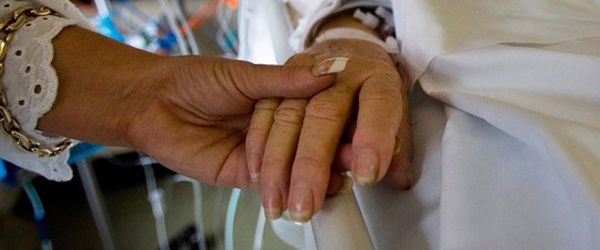Every human being possesses inherent dignity, which deserves our respect. Each of us should feel loved, worthy and cared for at every moment of our lives, especially when our earthly journey is nearing its end.
What some mistakenly consider a newfound “freedom,” will inevitably become a duty for others. By allowing doctors to prescribe a lethal dose of drugs to their patients, California is embarking on a dangerous course. This new law will place the disabled, the elderly and other vulnerable people at risk for abuse and mistreatment and will undermine the healing professions’ venerable commitment to “first do no harm.”
As Catholics, we have been called from the very beginning of our faith to care for the sick. This commitment to care for life at all stages will not be deterred by this law. The bishops of California and our partners in Catholic health care renew our promise to exceptional healing and compassionate care for those facing diagnosis of a terminal illness.
Together, we vow to strengthen our palliative care and other health care services for the chronically and terminally ill, so that no one we treat feels compelled to choose assisted suicide. Through our health care professionals and the care and compassion of all people of goodwill, we will continue to lovingly attend, accompany and care for the terminally ill on their final journey.
We have spoken — and will continue to speak — vigorously against this misguided law. It does not, for example, require a psychological assessment of people requesting assisted suicide. There are also significant concerns from the disability rights community about the lack of safeguards in the law, an absence of reliable information about its use and the growth of suicide in other states where assisted suicide is legal.
Pope Francis has challenged us many times to care for those on the margins. In an address last year to medical professionals he addressed our responsibility to care for people at the end of life:
“Palliative care is an expression of the truly human attitude of taking care of one another, especially of those who suffer. It is a testimony that the human person is always precious, even if marked by illness and old age. Indeed, the person, under any circumstances, is an asset to him/herself and to others and is loved by God. This is why, when their life becomes very fragile and the end of their earthly existence approaches, we feel the responsibility to assist and accompany them in the best way.”
We echo this commitment of our faith and take to heart the words of St. John Paul II: “respect, protect, love and serve life, every human life! Only in this direction will you find justice, development, true freedom, peace and happiness!”
— California Conference of Bishops

